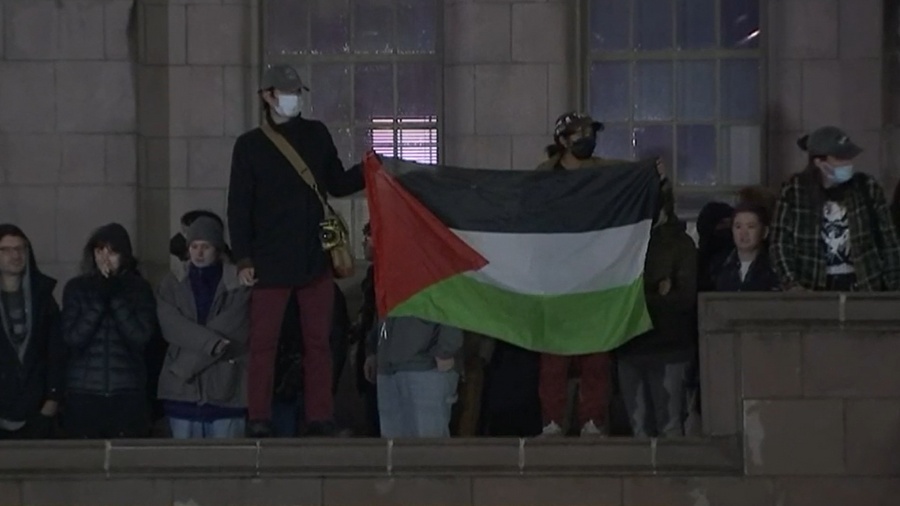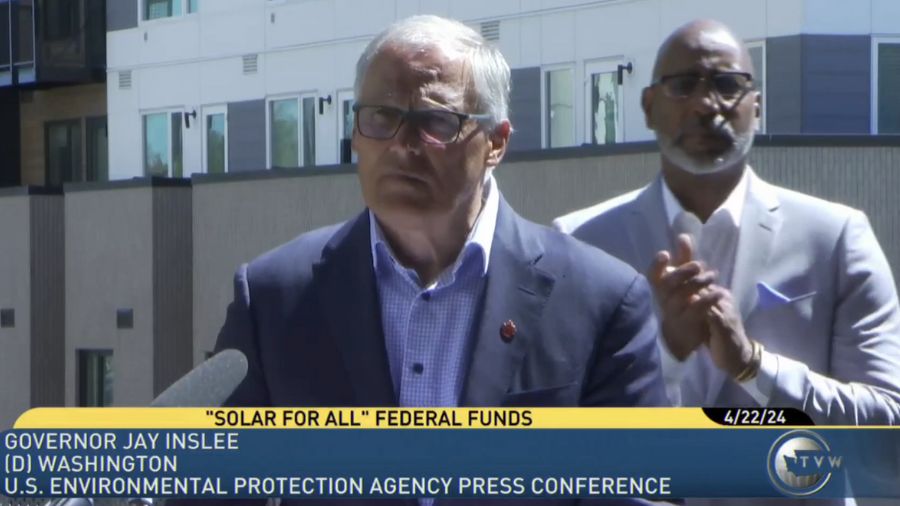Likely legal arguments for Seattle’s latest gun control proposal
Jun 1, 2018, 3:46 PM

(AP Photo/Jae C. Hong, File)
(AP Photo/Jae C. Hong, File)
Seattle is considering another gun control regulation. It has yet to pass, but former Washington Attorney General Rob McKenna says that one thing is certain.
“Looks like Seattle is headed for litigation, yet again,” McKenna told KTTH Radio’s Jason Rantz. “That would be a pretty safe bet.”
RELATED: Mayor Durkan proposes new firearm regulation for Seattle
Seattle Mayor Jenny Durkan has proposed new gun control regulations for the city. The council is currently considering it. In short, it requires firearm owners to safely store their weapons. There are penalties if they do not report lost or stolen guns. And there are additional penalties if their gun is used in a crime.
If and when this latest gun control measure passes in Seattle, McKenna says there are a few likely legal arguments that will arise when the city defends it in court.
Preemption clause for gun control
There is a preemption clause commonly cited in Washington — RCW 9.41.290. It essentially states that local jurisdictions — cities and counties — cannot enact gun control laws that are more strict than the state. The full text states:
The state of Washington hereby fully occupies and preempts the entire field of firearms regulation within the boundaries of the state, including the registration, licensing, possession, purchase, sale, acquisition, transfer, discharge, and transportation of firearms, or any other element relating to firearms or parts thereof, including ammunition and reloader components. Cities, towns, and counties or other municipalities may enact only those laws and ordinances relating to firearms that are specifically authorized by state law, as in RCW 9.41.300, and are consistent with this chapter. Such local ordinances shall have the same penalty as provided for by state law. Local laws and ordinances that are inconsistent with, more restrictive than, or exceed the requirements of state law shall not be enacted and are preempted and repealed, regardless of the nature of the code, charter, or home rule status of such city, town, county, or municipality.
Seattle ran into this issue a few years back when the city attempted to ban firearms in parks. It was challenged and shot down in court. But can this clause be applied to Seattle’s safe storage proposal?
“So the question will be … whether or not this kind of regulation, the storage of firearms, is going to preempted or not? I don’t know the answer to that, yet. I think this bears some more research. The question is already being asked and I assume the city attorney’s office is already is analyzing it,” McKenna said.
McKenna points out one aspect of the statute, however.
“The word ‘storage’ is not in there,” McKenna said. “So I imagine the city will say ‘Look, we can impose this requirement that you have to safely store your firearms because we are not talking about transporting them, buying or selling them.’”
“I assume they’ll make the argument that the state statute does not address storage,” he said. “Now it does address possession and one could argue that storage is an aspect of possession.”
There’s one other legal issue that the city and gun control opponents will likely bring up, according to McKenna. Can the city require safe storage?
“Is regulation of safe storage specifically authorized by state law? I don’t know that it is,” McKenna said.
There are state laws that allow courthouses or jails to ban firearms, which can deal with storage. This will be one debate in court.
Enforcement
Finally, there is enforcement. If Seattle is able to successfully defend its safe storage regulation in court, how will the city enforce it? How it will know people are safely storing their guns?
McKenna says Seattle will most likely enforce the law after the fact — meaning that once a lost or stolen gun is used in a crime, then the owner will face penalties. But this law will likely find its way into various other corners of legal disputes.
“You’re not going to go house-to-house … unless someone is at another person’s house and notes the absence of safe storage and calls it in. I suppose that could happen; doesn’t seem very likely,” McKenna said. “You could imagine a family law dispute where one ex-spouse argues to the court that the other spouse isn’t safely storing firearms as required by city ordinance … as a general matter it’s not likely that law enforcement is going to go door-to-door asking people A) do you have a firearm? and B) Can you tell us whether or not you are storing it in accordance with this ordinance?”














